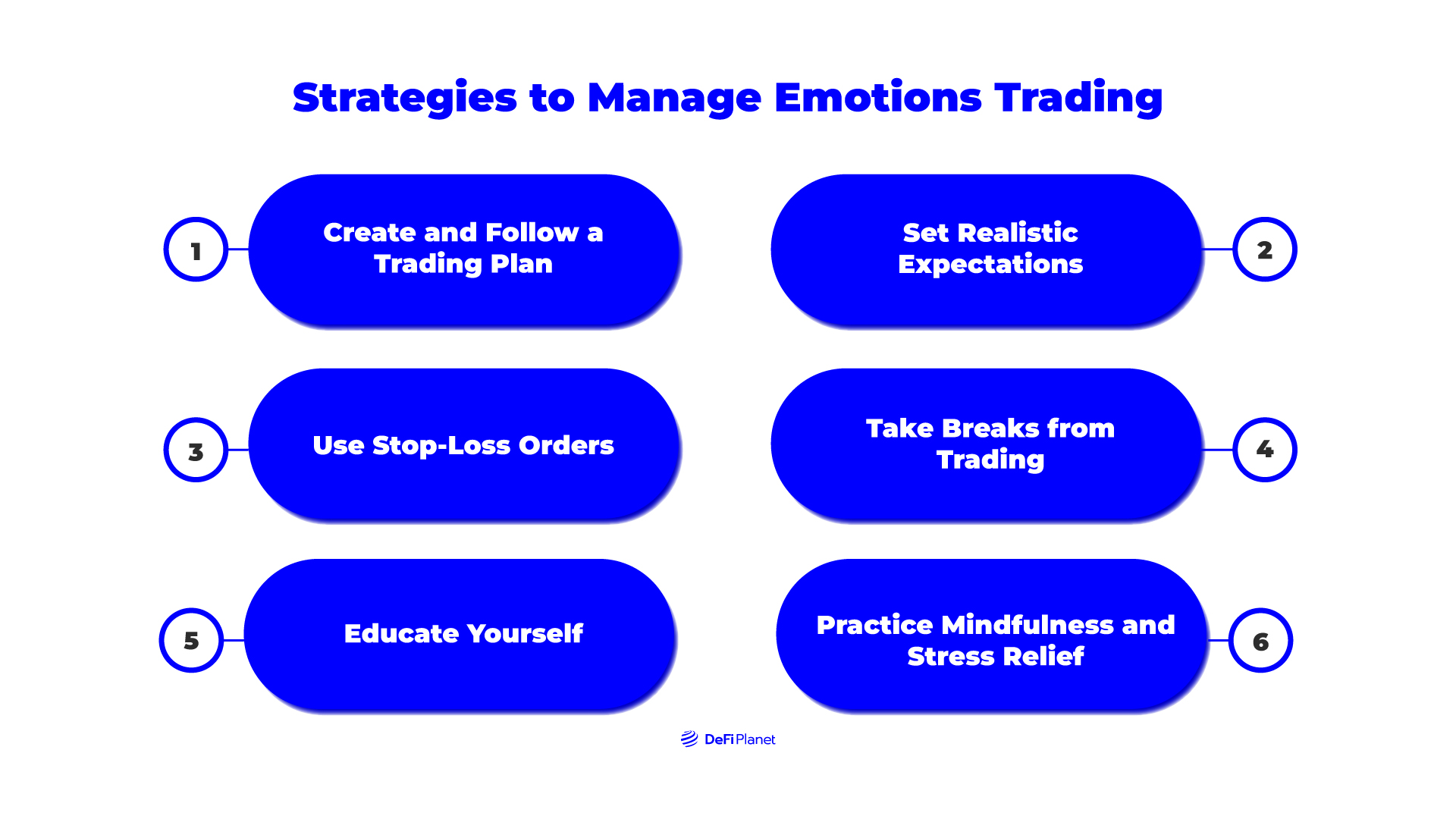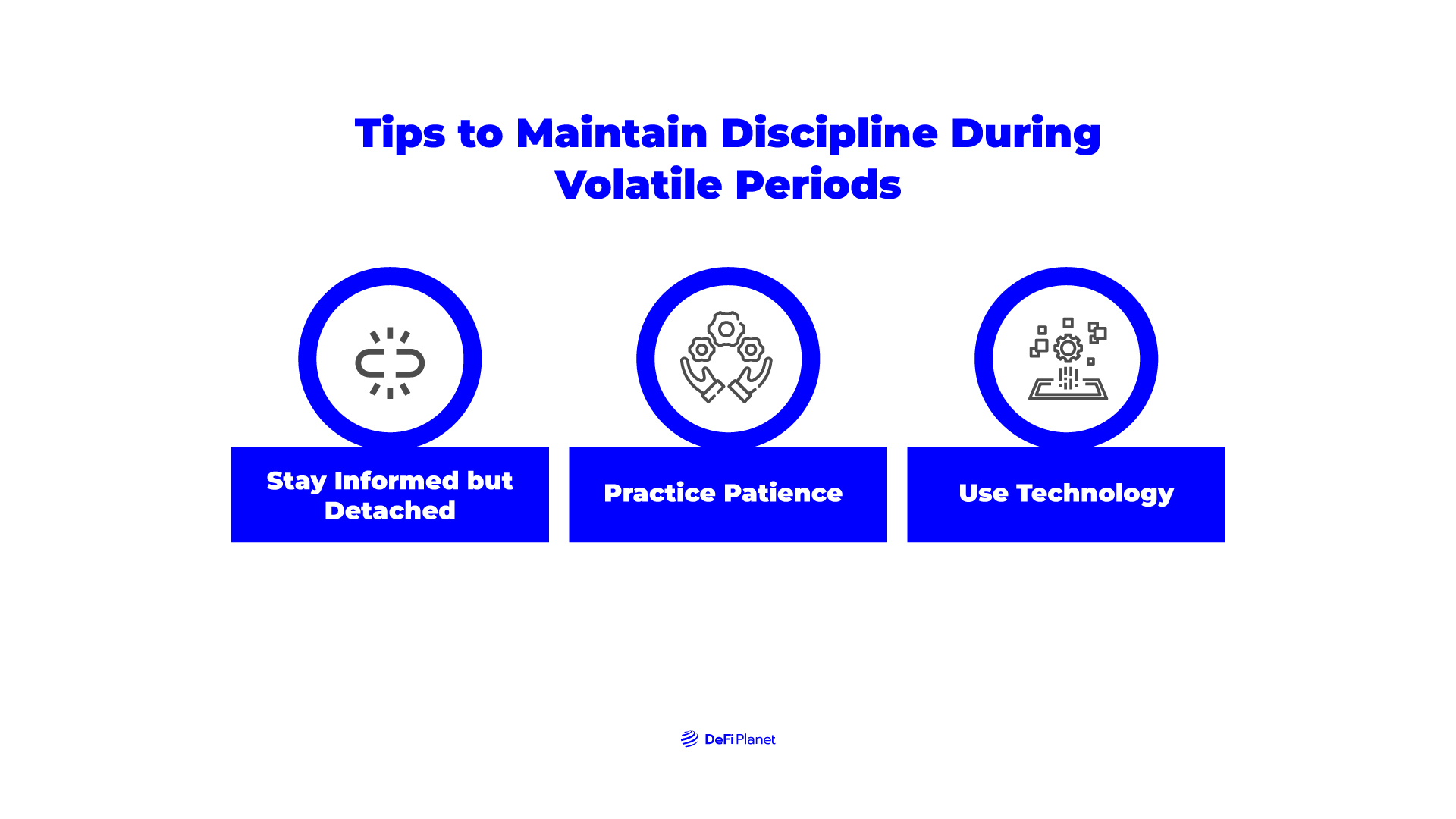Trading in the crypto markets can be intense emotionally, as traders go through highs like excitement and lows like fear or disappointment. Roughly 70% to 75% of cryptocurrency traders lose money in their first year because they make reckless trading decisions based on their emotions.
Emotional trading can lead to quick decisions based on biases, fear of losing money and avoiding risks, which can hurt how well you trade. To handle these ups and downs, traders need to recognize their feelings and use strategies to stay in control.
This article examines the psychological aspects of investing in crypto. We’ll discuss common emotional traps like fear and greed and offer strategies for handling these emotions better. Our goal is to provide practical tips and insights to help you navigate market cycles with confidence and develop a mindset that promotes discipline and resilience in your trading journey.
Understanding Emotional Trading
Emotional trading means making investment decisions based on feelings instead of logic or a solid strategy. And this often leads to big financial losses and a lot of stress.
This emotional trading is common in the crypto market because of its unstable price swings. Unlike traditional markets, where prices are usually more stable, cryptocurrencies can change drastically in a short time. These changes can cause traders to react emotionally and make decisions that don’t align with their long-term goals.
Therefore, managing emotional pitfalls such as fear, greed, and overconfidence while trading is key for long-term success and stability.
Market Cycles and Common Emotional Pitfalls
Understanding how market cycles influence trading decisions is crucial, as emotions such as fear and greed play a major role. These emotions can heavily influence how investors behave, whether the market is in a bullish upswing or a bearish downturn.
Bull Markets
A bull market occurs when crypto prices are rising, and investors are feeling good about the future. During this time, prices keep going up, often hitting new highs. This steady increase makes more people want to invest, which pushes prices up even more.
Investors are confident and optimistic, which leads to more buying and less selling. There’s a strong demand for cryptocurrencies because everyone expects prices to keep rising and wants to make a profit. Positive signs in the economy, like low unemployment, high consumer spending, and GDP growth, also help boost this confidence and support the market’s growth.
But bull markets can also lead to emotional mistakes. One big issue is greed. The excitement of seeing prices go up can make traders too greedy. They keep buying more assets, thinking prices will just keep rising. This can lead to buying at the highest prices, resulting in big losses when the market eventually goes down.
Another problem is overconfidence. When traders enjoy success in a bull market, they might start to feel unbeatable. This overconfidence can make them take on too much risk and ignore the chances of a market downturn. When the market finally corrects, these overconfident traders can face huge losses.
Bear Markets
In a bear market, things get tough for investors. Prices of assets go down for a long time, which can shrink how much money investors have in their wallets. People lose trust in the market, so they buy fewer assets. Fear and not knowing what will happen make the market go down even more.
Many investors sell their assets to stop losing more money, which makes prices fall even faster. People get scared and start selling everything quickly. Bad signs in the economy, like more people without jobs and the economy growing slower, also make investors worry more and make the market worse.
Fear and panic are big problems in bear markets. Fear of losing money makes it hard to make smart choices. Traders might sell their assets fast because they’re scared prices will keep going down. This happens because people feel losing money is worse than making money.
Panic can cause traders to sell all their assets without thinking about what might happen later. Panic selling often leads to losses that could’ve been avoided by staying calm and making smart plans.
Strategies to Manage Emotions Trading

To navigate these emotional pitfalls, traders need to adopt strategies that promote discipline and rational decision-making. Here are some effective methods:
Create and Follow a Trading Plan
Create a clear trading plan that spells out your goals, how much risk you’re okay with, and strategies for different market situations. Stick to this plan to make decisions based on logic rather than reacting emotionally to market changes.
Set Realistic Expectations
Understand that the crypto market is volatile, and prices can swing up or down fast. Expect gains and losses as part of your trading journey. Realistic expectations help you stay calm and avoid getting too worked up over sudden market moves.
Use Stop-Loss Orders
Set up stop-loss orders to automatically sell your assets if prices drop to a certain level. This tactic limits potential losses and stops you from making quick, fear-based decisions. It acts like a safety net during market drops, easing the emotional impact of sudden price falls.
Most importantly, it saves you from being a victim of wash trading.
Take Breaks from Trading
Watching the market all the time can ramp up stress and anxiety. Take regular breaks from your trading screens to keep a clear head. Stepping back lets you recharge and avoid making rash decisions because you’re too caught up in the ups and downs.
Educate Yourself
Stay up-to-date on the crypto market and different trading strategies. Knowledge reduces uncertainty and boosts confidence in your decisions. Keep learning to adapt to market shifts and improve your trading skills over time.
Practice Mindfulness and Stress Relief
Include mindfulness activities like meditation, exercise, or deep breathing in your routine. These techniques help manage stress and keep you emotionally steady when the market gets crazy. By staying calm, you can make smarter trading choices based on your well-thought-out strategies.
Tips On How to Maintain Discipline During Volatile Periods

Maintaining discipline through unstable markets requires smart decision-making. Here are key tips to help traders stay focused and resilient during volatile times.
Stay Informed but Detached
It is important to keep up with the latest news and market developments. This includes knowing about changes in rules, new technology, and the state of the world economy.
However, it’s also crucial not to get too caught up emotionally in the news. Emotions can make you act too quickly, like selling everything when prices drop or buying a lot when they go up fast. By staying calm and detached, traders can think clearly and make decisions that fit their long-term plans, not just react to short-term ups and downs.
Practice Patience
In trading, patience is key, especially when markets are unpredictable. Prices can change a lot in a short time, making it tempting to make quick moves to make money fast or avoid losing it.
However, making many fast trades can cost more money and lead to bad choices based on emotions rather than smart planning. Being patient means sticking to a clear trading plan and not changing it just because the market is up or down. It’s about waiting for the right moments that fit your strategy rather than jumping on every change in the market.
Use Technology
Technology is a big help in trading today. Apps and tools like TradingView, Coinbase Pro, and MetaTrader 4 (MT4) can automatically trade for you based on rules you set, such as selling
Source link



















